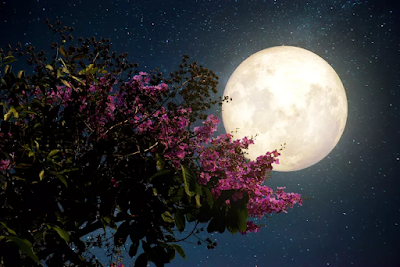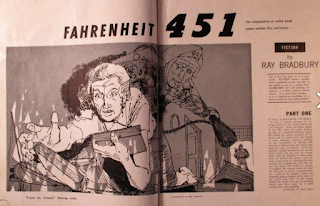Tuesday 28 February 2023
Poetry Session - February 16, 2023
Thursday 9 February 2023
Fahrenheit 451 by Ray Bradbury – January 30, 2023
First Edition of ‘Fahrenheit 451’ signed by Ray Bradbury, published by Ballantine Books in 1953
The protagonist, Guy Montag, is a fireman who becomes
disillusioned with his job, and the society he lives in, after a series of
encounters with a mysterious young girl named Clarisse, and a retired professor
named Faber. Montag begins to secretly read books and becomes more and more
aware of the oppressive nature of his society. He eventually joins a group of
rebels who are working to preserve books and the knowledge they contain. The
novel explores themes of censorship, the dangers of conformism, and the power
of literature. Bradbury wrote the novel as a reaction to the McCarthyite
political climate of the 1950s and as a warning about the dangers of censorship
and the suppression of dissenting ideas.
https://www.britannica.com/event/Charlie-Hebdo-shooting
https://www.theguardian.com/us-news/2022/apr/07/book-bans-pen-america-school-districts
Even today in
India authorities attempt to use the police to squelch the expression of works
critical of the government. This is contrary to the latitude given in the
Constitution to a free press and to voice opinions that dissent from the
majority (peacefully, of course). Many writers face the fate of Perumal Murugan
who was hounded by Hindutva and caste-based groups which demanded a ban on his
book Madhorubhagan, saying it was derogatory in its depiction of
women and rituals. See:
Most recently a BBC documentary was not banned, but its exhibition was suppressed in many locations, including educational institutions, by using the police to interfere.
It is well to remember what Salman Rushdie, himself the object of severe threats from Iranian mullahs, said: “What is freedom of expression? Without the freedom to offend, it ceases to exist.”
The Indian writer Arundhati Roy has emphasised that freedom of expression is a fundamental human right and is essential for the functioning of a free and open society. She has also stressed the importance of protecting the rights of writers, journalists, and other artists to express their ideas freely, and the need to create an environment where dissenting voices can be heard.


.png)






